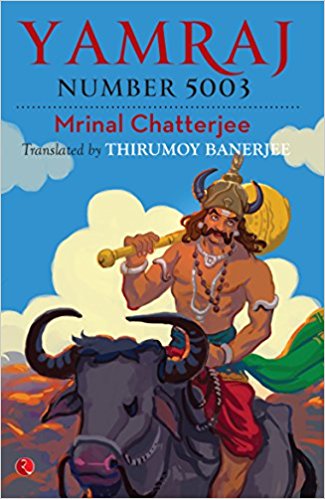 THERE IS something fascinating about watching a dynasty come to an end; it’s rather like watching a documentary of a predator swallowing its prey. On reflection, there might be sadness and sympathy, but while it’s happening the action is riveting. The ICC rankings were introduced only in 2003, but had they existed since 1995 — the year Ricky Ponting made his debut — Australia would’ve been at the top all the time barring eight months.
THERE IS something fascinating about watching a dynasty come to an end; it’s rather like watching a documentary of a predator swallowing its prey. On reflection, there might be sadness and sympathy, but while it’s happening the action is riveting. The ICC rankings were introduced only in 2003, but had they existed since 1995 — the year Ricky Ponting made his debut — Australia would’ve been at the top all the time barring eight months.
Not surprisingly, therefore, Ponting has been in 98 Test-winning teams, more than any other player. He was never a great captain, but he led a great team, and hence the sadness as he presides over its decline and fall. His captaincy has come in for criticism; he’s twice lost series in England and in India, where his record is five defeats in seven matches. The Ashes series beginning at home next month is a chance for redemption — all sins are forgiven if you beat England — but either way Ponting the captain is approaching the end of the road.
Australia are using that most convenient of excuses — TINA (There Is No Alternative) — Indians in particular use to justify status quo, whether in politics or on the cricket field. It will ensure that Ponting leads in the Ashes series, but he has to start winning, and winning quickly.
This is ironic, because Ponting’s record as captain is the best in the game, with 47 wins, more than any other captain. Perhaps it is this record that is working against him now. In India he just did not have the team to win, but was still only one delivery away from victory in Mohali. Had that result been different, the story of the series would have been different too. Perhaps if umpire Billy Bowden’s crooked finger had ruled in Australia’s favour when last man Pragyan Ojha was rapped on the pads… perhaps if Michael Clarke made enough runs to inspire a change in captaincy… perhaps if Ponting hadn’t lost twice in England… Perhaps, perhaps.
Ponting said after the Bengaluru Test that scores in the 70s from him were just not good enough. “I should’ve made a double century,” he explained. Yet not even Sachin Tendulkar’s double century could put in the shade Ponting’s brilliant batting in both innings. He’s a contemporary great, and one of the greatest to have played the game, yet seems condemned to preside over a team in decline. Australia haven’t been as low as fifth in the ICC ranking before. Ponting, who earned some undeserved credit as captain of a powerful team with Shane Warne and Adam Gilchrist and Glenn McGrath and Matthew Hayden conquering all before them, must cop the unfair blame when the current crop fails to deliver. Sad, but that is the nature of captaincy.
Till the other day, Ponting was touted as the finest captain around, one who led by example, and got the best out of his players as captains are meant to. He was — not without reason — expected to be the link between generations, his own and the next, perhaps Michael Clarke’s. Today he is between generations, as the old order is changing and the new is found wanting. From being a coordinator in the days of the star players, he was expected to be a moulder of the younger players, a role he is uncomfortable with.
Now he is up against the oldest and most unfair rating in the game — when teams win, it is due to teamwork, team spirit and all those wonderful things, but when teams lose, it is the captain’s fault.
The captaincy-team debate is rather like the driver-vehicle debate in Formula One. Can a great driver overcome the handicap of a poor car? Can a poor driver win in a great car? A team with Warne, McGrath and Gilchrist did not need particularly deft handling. But one with Peter George, Nathan Hauritz and Tim Paine does.
A thought experiment: How would’ve Dhoni handled this Australian side playing against an Indian side led by Ponting? Would he have been able to inspire the strike bowlers into embarrassing the batsmen rather than his captain? Would he have kept India’s famed middle order in check with his limited resources?
He’s a contemporary great, and one of the greatest to have played the game, yet seems condemned to preside over a team in decline
The answer is so obvious it doesn’t bear repeating — yet within that answer lies the essence of captaincy. Captains can raise a team’s play only so much — Mike Brearley made his reputation in 1981 when he turned a 0-1 start by England (under Ian Botham) into a 3-1 series win. Tiger Pataudi, brought back to lead when he was long finished as a batsman, pulled level after India trailed West Indies 0-2 in a home series (before the visitors finally won 3-2 in 1974-75). These are two cases of captains changing the fortunes of an inferior team.
But in the end, the cliché holds (that is why they are clichés): a captain is only as good as his team.
AT VARIOUS points in their careers, Ponting’s rivals (and superiors) as the best contemporary batsmen, Tendulkar and Brian Lara did experiment with captaincy and both were found wanting. They didn’t lead enough to be in the captaincy debate, preferring to be judged on their batting alone. Ponting has no such luxury. He will be remembered as much for his batsmanship as for his captaincy, and will be judged not so much by his victories as by his defeats. This is the price the top performers have to pay for being at the top. They are measured by a different yardstick.
Ponting was unimpressive in the Bengaluru Test, appearing negative when there was a Test to be won rather than drawn, setting fields for his spinner that would have embarrassed the bowler, and letting things drift when quick runs and a declaration were called for on the last two days. The irony is that in recent years he has been a fine spokesman for the game, a calm presence on the field and a great supporter of Test cricket. Yet he won more often when he was more cantankerous.
Traditionally, Australia first choose their eleven and pick the captain, usually the best batsman, from within (unlike England and India who first pick the captain, thus investing the job with a special aura). With Ponting showing that at 35 he is still the best batsman in the side but not necessarily its best captain, it might be time to throw tradition out of the window and pick a captain who is not necessarily the best player. Australia can afford to do without their most successful captain, but not without their most successful batsman.




